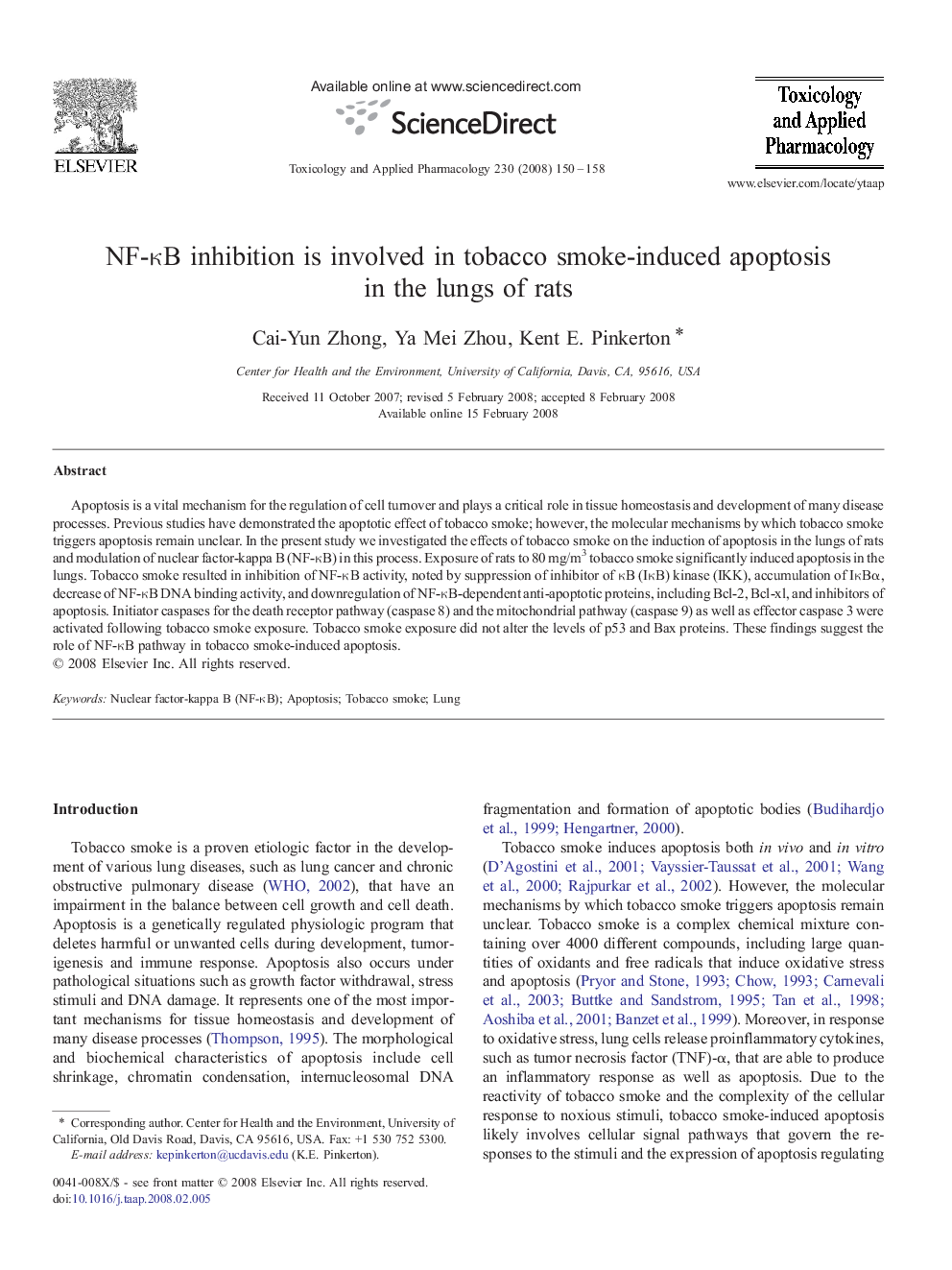| Article ID | Journal | Published Year | Pages | File Type |
|---|---|---|---|---|
| 2570353 | Toxicology and Applied Pharmacology | 2008 | 9 Pages |
Abstract
Apoptosis is a vital mechanism for the regulation of cell turnover and plays a critical role in tissue homeostasis and development of many disease processes. Previous studies have demonstrated the apoptotic effect of tobacco smoke; however, the molecular mechanisms by which tobacco smoke triggers apoptosis remain unclear. In the present study we investigated the effects of tobacco smoke on the induction of apoptosis in the lungs of rats and modulation of nuclear factor-kappa B (NF-κB) in this process. Exposure of rats to 80 mg/m3 tobacco smoke significantly induced apoptosis in the lungs. Tobacco smoke resulted in inhibition of NF-κB activity, noted by suppression of inhibitor of κB (IκB) kinase (IKK), accumulation of IκBα, decrease of NF-κB DNA binding activity, and downregulation of NF-κB-dependent anti-apoptotic proteins, including Bcl-2, Bcl-xl, and inhibitors of apoptosis. Initiator caspases for the death receptor pathway (caspase 8) and the mitochondrial pathway (caspase 9) as well as effector caspase 3 were activated following tobacco smoke exposure. Tobacco smoke exposure did not alter the levels of p53 and Bax proteins. These findings suggest the role of NF-κB pathway in tobacco smoke-induced apoptosis.
Related Topics
Life Sciences
Environmental Science
Health, Toxicology and Mutagenesis
Authors
Cai-Yun Zhong, Ya Mei Zhou, Kent E. Pinkerton,
